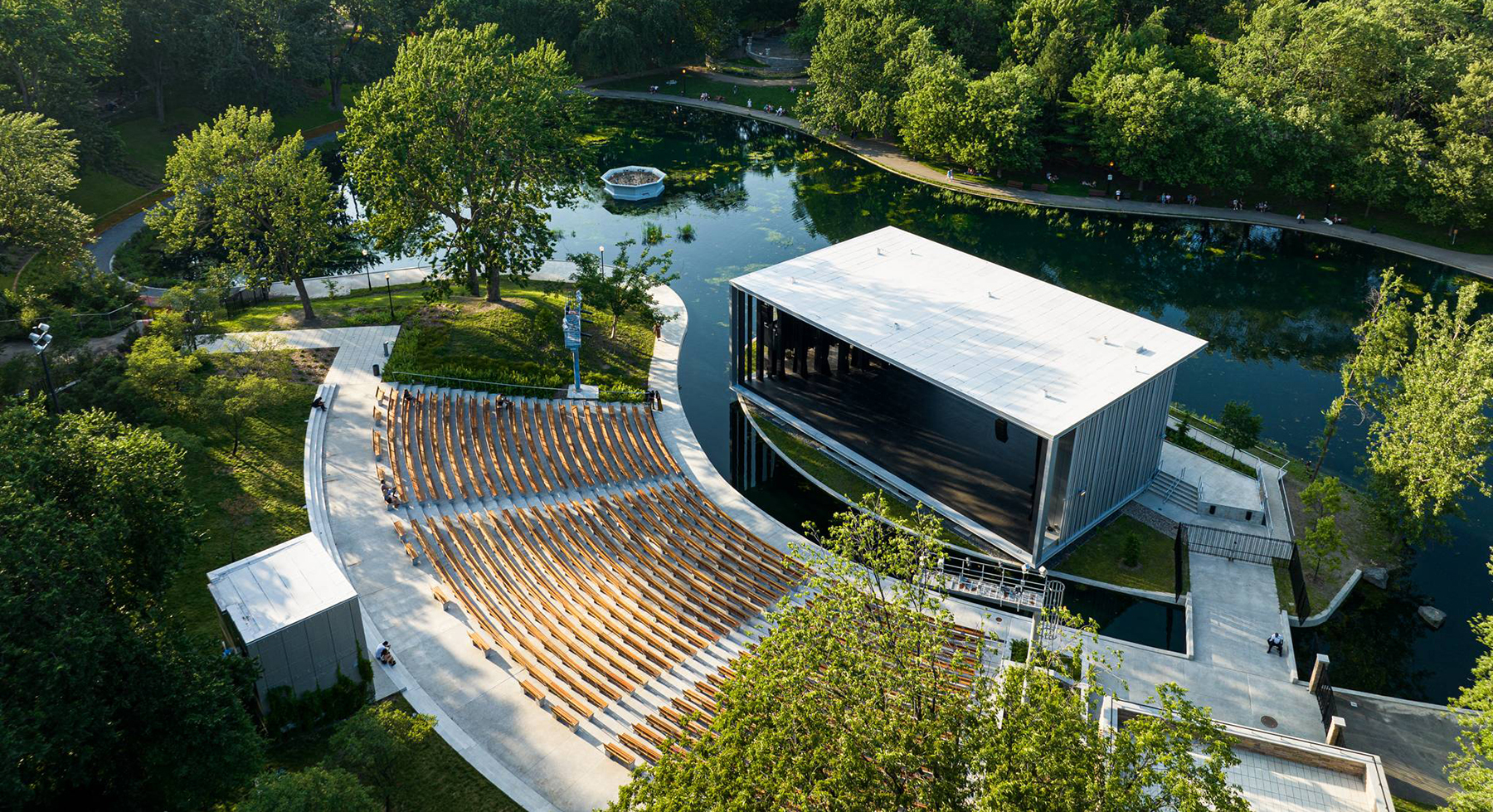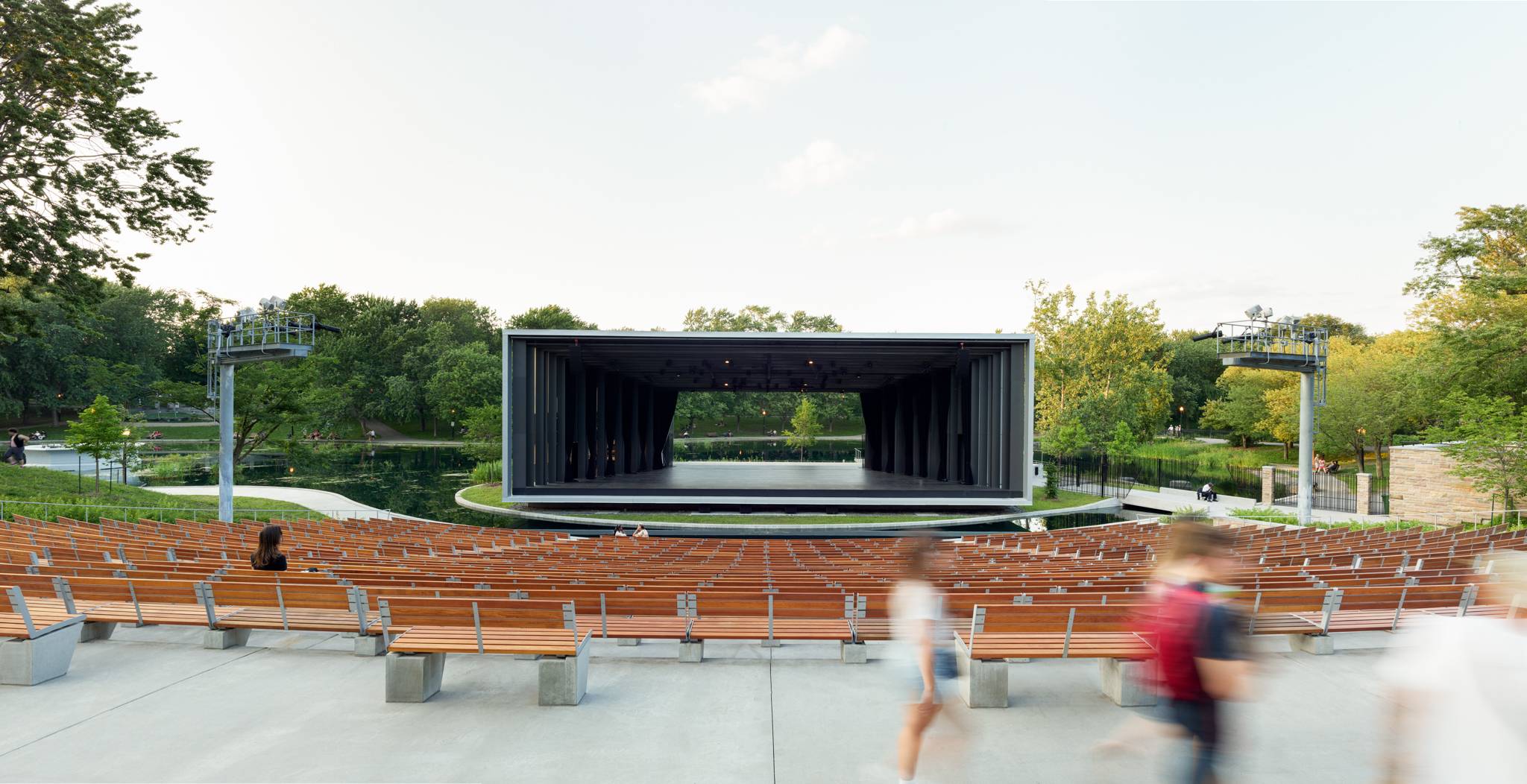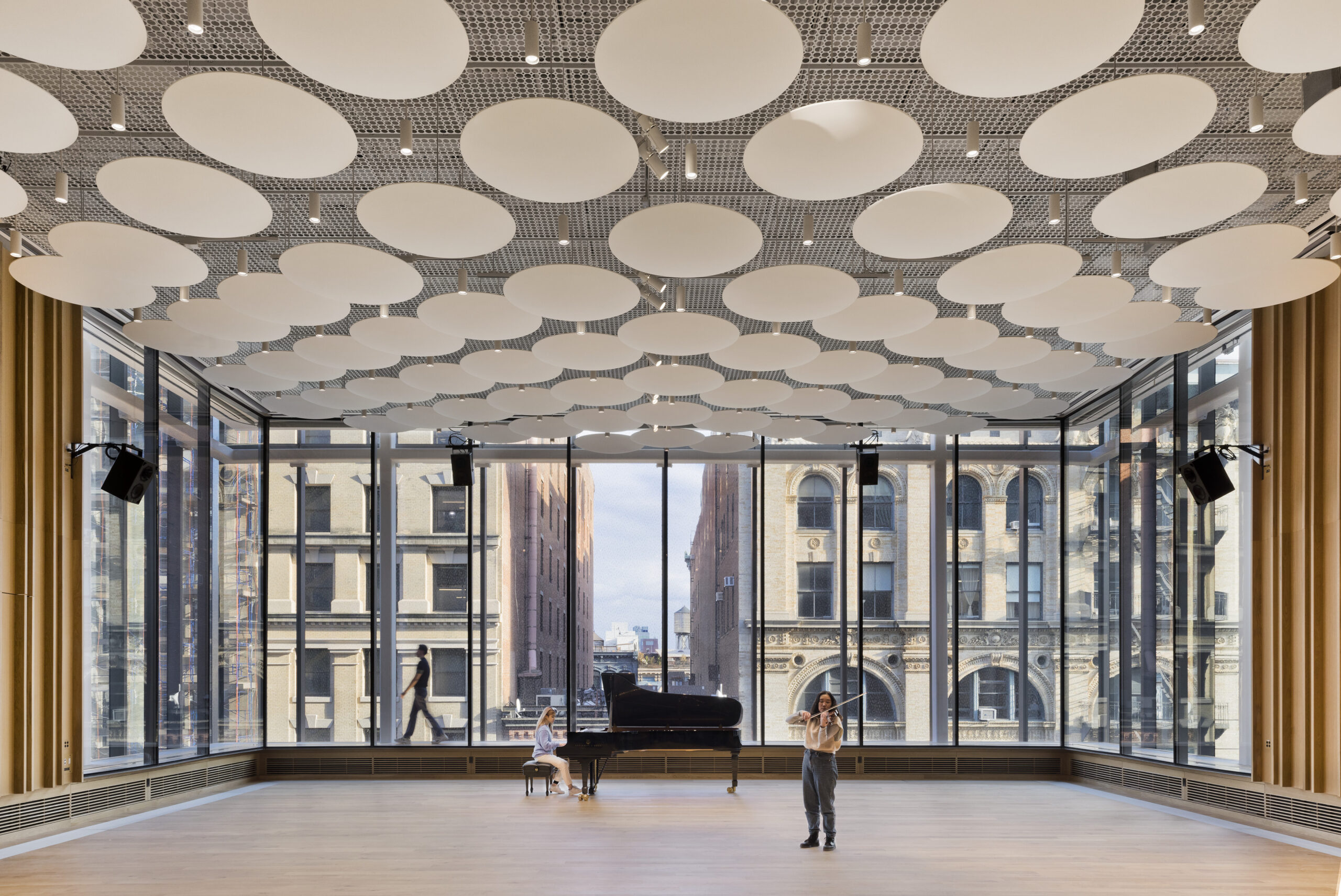The latest edition of “Architizer: The World’s Best Architecture” — a stunning, hardbound book celebrating the most inspiring contemporary architecture from around the globe — is now available. Order your copy today.
If people-watching were a sport, I’m certain I’d be a gold medalist. That might have you raising an eyebrow or two, but stick with me here. The thing about humans is that we’re nosey. You can use the word curious if you’d like to be polite about it, but nosey works for me. There’s just something about seeing other people going about their daily lives and wondering where they are rushing off to and who they might be meeting. Is it somewhere fun? We just can’t help ourselves but wonder. It’s why reality TV is so popular; it’s why all the best cafes are on plazas. It’s even the reason apps like Instagram exist. We just like to see what’s going on in other people’s lives.
Unfortunately, there is often one very large obstacle that gets in the way of our unabashed curiosity. Those big, solid hunks of mass that our eyes just can’t seem to penetrate. Walls. Pesky walls hide any number of interesting things. Well, fret no more. It would appear that we, the nosey ones, are not alone, and these A+ Award-winning architects are more than happy to show us their inner workings. Each of the following projects has been designed in a way that invites the viewer to look deeper and ask the question, “Do we really need so many walls?”
Théâtre de Verdure
By Lemay, Montréal, Canada
Jury Winner, Hall / Theater, 12th Annual A+Awards


The Théâtre de Verdure first became a working outdoor theatre in 1956. Since then, it has hosted many wonderful performances. Its recent redevelopment, a new four-season concept, aims to strengthen the building’s relationship with its inner park location, honoring its beautiful natural surroundings and responding to them with sensitive interventions.
By making the main stage building lighter and opening up the sides and the rear, the architects have created an environment where landscape and architecture can comfortably coexist. They have reduced the stage’s visual impact on the park while intelligently incorporating the surrounding natural beauty into the performances that will take place on the outdoor stage. Glimpses of tree life and the evolving nature can be seen from within the stage — a decision that facilitates a beautifully immersive experience for performers and viewers alike. Additionally, as a through-and-through space, the simple stage’s entire depth is vastly apparent and can now be used to its full potential for shows that can gather a crowd of thousands of people.
Skew House
By DANILO DANGUBIC ARCHITECTS, Pancevo, Serbia
Popular Choice Winner, Multi Unit Housing – Mid Rise (5-15 floors), 12th Annual A+Awards
Photos by Miloš Martinović
Skew House in Pancevo is very much about its façade. It is a residential building made up of twenty-four units of varying sizes. On the inside, the building is modest and streamlined, with a conventional layout and color scheme. The exterior, however, is where the showing-off happens.
Equipped with sliding façade panels, the building is eye-catching and ever-changing. Offering both aesthetic appeal and intelligent practical benefits, the terracotta-tone panels are designed to slide and be adjusted by residents to control lighting and privacy. The perforated panels can be stacked, opened or lined up individually to achieve various levels of connection or disassociation to the outside, not simply to achieve a certain look but as a way of adjusting the internal temperature or level of daylight entering each of the apartments. This seemingly simple design feature assists in creating a comfortable climate for its individual inhabitants. It is a fantastic building that is effortlessly flexible and adaptable at a moment’s notice.
John A. Paulson Center
By KieranTimberlake and Davis Brody Bond, a Page Company, New York City, New York
Jury Winner, Higher Education and Research Facilities, 12th Annual A+Awards
Photos by Connie Zhou / JBSA
Finding adequate space in Manhattan is never easy. However, when you do, it’s always a good idea to make the most of your incredible surroundings, and that is exactly what KieranTimberlake, the architects in charge of creating New York University’s newest building, the John A. Paulson Center, have done.
Not far from Washington Square Park, the new building, designed to optimize interactions between various student groups and academic disciplines, fully takes advantage of its 360-degree relationship with the surrounding neighborhood. In a surprising move, the architects have chosen to place the building’s main circulation routes along the transparent perimeter of the structure, with all classrooms and instructional spaces at the center of the building. This unconventional but incredibly successful design choice gifts faculty and students with one-of-a-kind city views as they navigate the building, truly making the most of its remarkable location.
To passersby, the design has become a feature of interest. This unusual layout choice gives outside observers a sense of the activity going on within the building, connecting it to the rest of the city and encouraging the casual encounters and intellectual exchanges that are at the center of the NYU experience. From above, overlooking buildings can see a series of green roofs and outdoor terraces that brighten the upper landscape and help accentuate a connection with nature as well as the campus inhabitants.
Komonokaen
By Tatsuya Kawamoto + Associates, Japan
Popular Choice Winner, Retail, 12th Annual A+Awards
Photographs by ToLoLo Studio
At face value, Komonokaen is a florist, a plant shop and a café. Yet, the place is so much more than a simple retail space. It is an integral part of its neighborhood, a landmark space within its hometown that strives to welcome visitors to linger and lounge in its tourist-heavy location.
Consisting of two structures separated by a road, the architects, Tatsuya Kawamoto + Associates, have taken great care to combine two sites into one experience with continuity and finesse. Positioned in a U-shape, the two buildings give the impression of one continuous property despite being two plots. The open-plan store has been designed specifically to attract passers-by and draw them off their path while encouraging them to meander through the tranquil space and explore.
Very few internal walls have been used in the design in a quest to remove barriers and strengthen the relationship between the indoors and outdoors. This idea is strengthened by the vibrant gardens that surround the building. By incorporating nature around and through the building, the architects have ensured the dissecting road becomes part of the building and customer journey, not an interruption. The design succeeds in creating an open and welcoming environment that feels cohesive and pleasant.
The latest edition of “Architizer: The World’s Best Architecture” — a stunning, hardbound book celebrating the most inspiring contemporary architecture from around the globe — is now available. Order your copy today.
